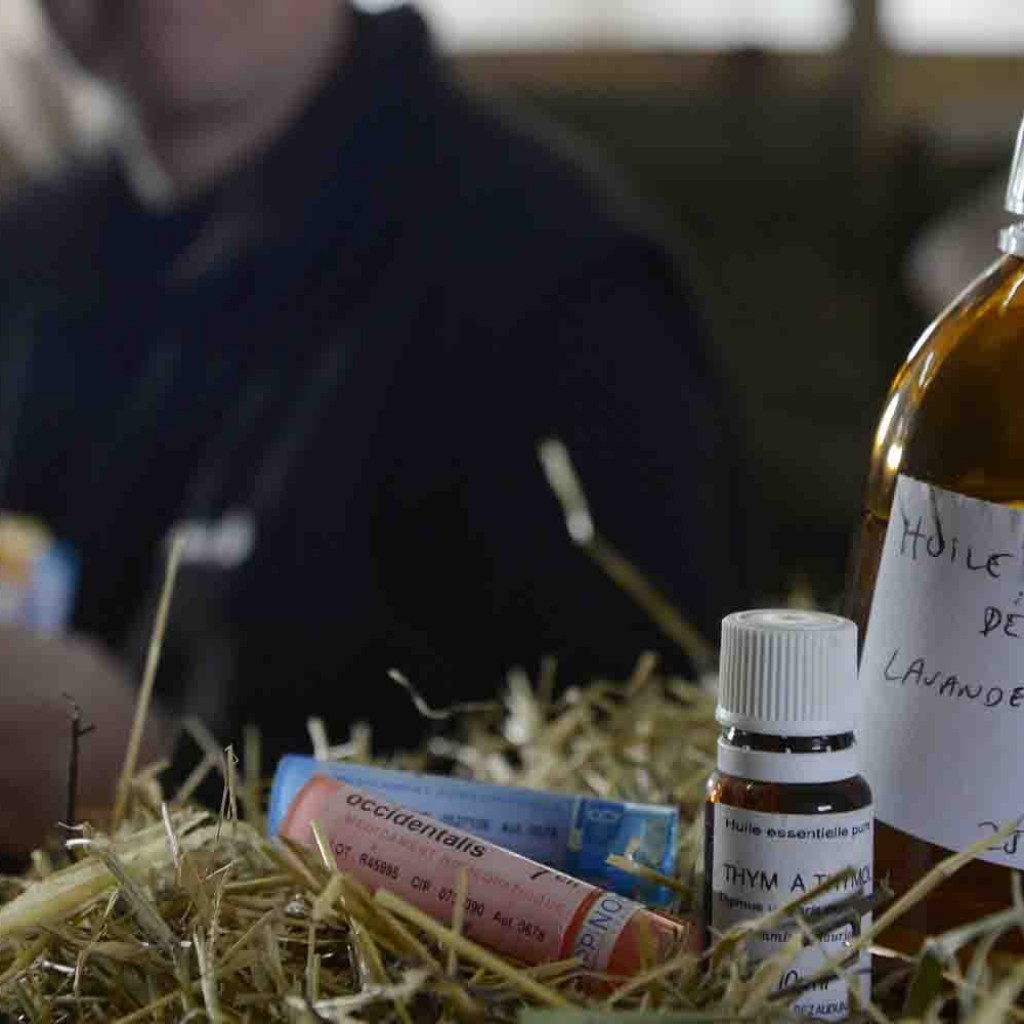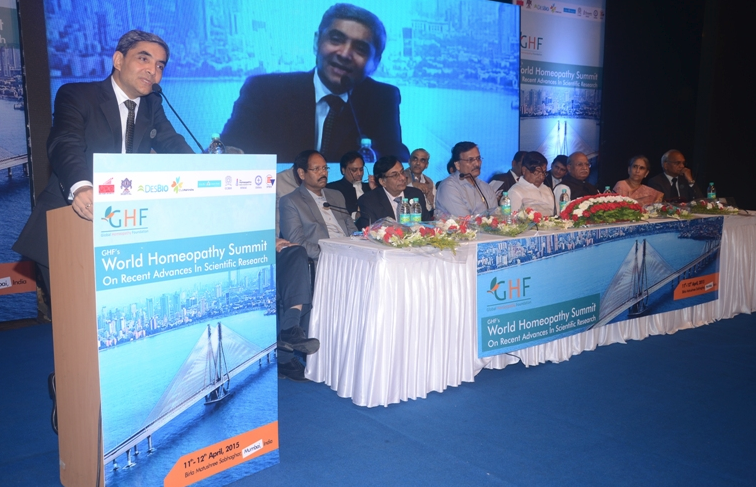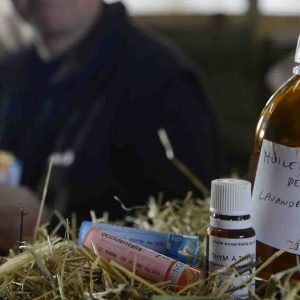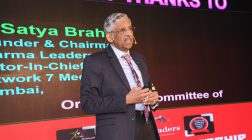World’s Most Ancient Medical practice Homeopathy under fire from US FDA & Other Research Inputs!

Homeopathy is no more effective than a placebo, a national medical review has found.The National Health and Medical Research Council recently conducted a study into evidence on the effectiveness of homeopathy for treating health conditions, concluding that this method of therapy is ineffective.It further warned that those who choose homeopathy treatments over others ‘may put their health at risk’.Yet the Australian Homeopathic Association has criticised the NHMRC’s ‘biased’ review, saying homeopathy is one of the most used medical systems in the world – among them being about one million Australians.Homeopathy is a type of alternative and natural form of medicine, which is based on the notion that substances that may cause illness in a healthy person can treat those symptoms in a person who is unwell.The NHMRC’s conclusion, released on Wednesday, is based on the findings of more than 1800 papers.Although there were some studies which showed that homeopathy was effective, the NHMRC states they were assessed as being ‘small or of poor quality’.’These studies had either too few participants, poor design, poor conduct and or reporting to allow reliable conclusions to be drawn on the effectiveness of homeopathy,’ it states.From the research, the NHMRC further warned that homeopathy should not be used as an alternative to treat health conditions that are chronic or serious.’People who choose homeopathy may put their health at risk if they reject or delay treatments for which there is good evidence for safety and effectiveness,’ the study states.’Those who use homeopathy should tell their health practitioner and should keep taking any prescribed treatments.’About $10 million is spent on homeopathy by Australians, according to the World Health Organisation . About $10 million is spent on homeopathy by Australians, according to the World Health Organisation
NHMRC’s CEO Professor Warwick Anderson says all medical treatments should be supported by reliable evidence.’NHMRC’s review shows that there is no good quality evidence to support the claim that homeopathy works better than a placebo,’ he said.
WHAT IS HOMEOPATHY?
-
Homeopathy is a type of complementary and alternative medicine, according to the National Health and Medical Research Council.
It is based on two main ideas:
That substances that may cause illness or symptoms in a healthy person can, in very small doses, treat those symptoms in a person who is unwell; and
That molecules in highly diluted substances retain a memoryof the original substance.
Homeopathic medicines include pellets placed under the tongue, tablets, liquids, ointments, sprays and creams.
‘From this review, the main recommendation for Australians is that they should not rely on homeopathy as a substitute for proven, effective treatments.’
But in an open letter to Professor Anderson, the Australian Homeopathic Association accused the authors of the NHMRC review of being biased.
‘Homeopathy is one of the most used medical systems in the world, with an estimated one million Australians choosing homeopathy as part of their health care,’ the association said in a statement.
‘In Europe over 30 million people use homeopathic medicine, in India over 100 million people depend solely on homeopathic medicine.’
The association says homeopathy is not ideally suited to systematic reviews such as the NHMRC’s as the therapy is ‘a holistic system of medicine that focuses on the unique situation of each individual’s overall health’.
Is Homeopathy effective and safe? Yes, say practitioners from across the globe
One of the constant and recurring themes, especially on social media, is the effectiveness and genuineness of Homeopathy as a valid system of medicine.
While both sides have strong arguments, and often strong passion, the Global Homeopathy Foundation has taken it in its hands to dispel what it feels is disinformation by a section of medical community that Homeopathy has only placebo effect.

The Federation kick-started its two-day summit with scientists and practitioners from India and abroad presenting their research papers to demonstrate that the steam of medicine offers possible cure for a host of diseases like cancer, AIDS, swine flu, MDR-TB.
Addressing the World Homeopathy Summit, researchers said they have already found that snake venom and human immunodeficiency virus could provide answers for treatment of AIDS and the tuberculosis germs for curing MDR-TB, while patients of several other diseases like cancer and swine flu could find hopes in homeopathy medicines.
The Central Council for Research in Homeopathy (CCRH), a premium government body under AYUSH, is the collaborator with GHF for the summit at which scientists from eminent institutes of pure science such as IIT-B, ICMR, TIFR, BARC, Haffkine, ICT, and Bose also be presented their study reports.
“The summit should bring about a paradigm shift in the way the world looks at homeopathy and shock even some practicing homeopaths who believed that the medicines had some energy effect,” said Dr Rajesh Shah, organising secretary of the Foundation.
Research by doctors at the Hyderabad-based JSPS Govt. Homeopathic Medical College, and Indian Institute of Chemical Technology (IICT) Hyderabad, showed that Homeopathic medicine from snake venom, Crotalus Horridus, has positively shown that it can arrest the multiplication of human immunodeficiency virus (HIV).
Prof. Dr Praveen Kumar, Head of Department of Practice of Medicine at JSPS College at Hyderabad said scientifically speaking, Crotalus Horridus has inhibited reverse transcriptase or RT – an enzyme which is utilized by viruses like HIV and Hepatitis-B to convert the viral RNA into viral DNA so that they multiply into billions and wreck patients.
“Our experiment entails that the homeopathic drug has the capacity to act on HIV, Heb-B and so on,” he said: “our work has certainly opened the floodgates of advanced research and clinical testing.”
For years, Homeopathy has been adapting the process of converting snake venom and poison from deadly scorpions, spiders and wild bees into medicinal substances by transforming them into nano-particles that have proved safe and effective for patients, Dr Shah pointed out.
Homeopaths in the United States are delighted to see that research is ongoing around the world. We look forward to the presentations at the World Congress next week, and very much hope that the remedy for HIV made from snake venom proves to be effective. Certainly the physiologic effect of blocking virus entry into host cells via secreted phospholipase A2 is promising. And if the remedy can be used in a homeopathic dilution, so much the better. Homeopathy as an alternative works very well for diseases like Asthma, Allergy etc.and there are no side effects or ill effects.. Like they say, Proof of the pudding is in the eating ,whether Allopathy doctors appreciate Homeopathy or not patients get relief from Homeopathy.How it works is being debated but it works is the fact
“As a virologist, I was surprised to learn that homeopathy also sources medicines from virus, bacteria and parasites, long before microbiology was fully developed,” remarked Dr Abhay Chaudhary, Director Haffkine Institute, which also makes polio vaccine in India.
Dismissing the critics’ view point that homeopathy medicines in high dilutions have just a placebo effect and that they are medicines without a medicine, a research has proved that they do contain nano-particles of the starting material. The study by Dr.E.S.Rajendran, MD(Hom), Director of Vinayaka Missions Homeopathic Medical college, Salem, done at the Centre for Nano Science and Engineering (CeNSE) of the Indian Institute of Science (IIS), has conclusively proved that homeopathy dilutions contain nanoparticles.
“It’s an era of pluralistic healthcare. No System is complete. Homeopathy is personalized medicine and Homeopaths are the first technocrats in medicine in terms of use of computer software and Mac in early times for their analysis. Allopathy has scope only for 40% diseases which are mostly infectious and nutritional diseases. MUHS is going to volunteer meta analysis in Homeopathy. Human genes has memory of health and diseases and homeopathy helps to decode this information,” says Dr. Arun Jamkar, Maharashtra University of Health Sciences (MUHS).
Italian microbiologist Paolo Bellavite has demonstrated the mechanism of action of mysterious homeopathic medicines on cells, animals and bacteria. With this, Homeopathy, after 220 years of its invention, finds its mechanism of action. Prof Bellavite, who has published over 50 research-based papers in international journals, proves how ultra-dilute, homeopathy medicines work in human cells, in a breakthrough research.
Swine flu may have preventive homeopathy, researcher in Brazil proves found in his research. Scientist from Brazil University conducted a study and proved the role of homeopathy medicine sourced from influenza virus itself, to prevent the disease. This study along with Mumbai-based Dr Rajesh Shah’s experiment with HIV, Hepatitis C and TB germs will open new avenues in the treatment of infectious diseases.
Interestingly, physicists at TIFR and BARC detected the energy particles’ effect in homeopathy using laser beams and electrical device. These studies change the perception about the nature of homeopathy medicines, which was earlier believed to be pure energy.
Researchers in Brazil, Italy and India show that homeopathy also found to work in animals and plants, apart from humans. Independent studies by scientists like molecular biologist Dr AR Khuda-Bukhsha (india), Dr Leoni Bonamin, (Brazil), Dr Paolo Bellavite, Dr Gaurisankar Sa (india) proved that homeopathic medicines work even on cell-line models.
A chemist from IIT-B, and a physicist from IICT (Indian Institute of Chemical Technology), in independent studies demonstrated nano-particles in ultra-diluted homeopathic medicines. Both the scientists, along with other 23 from various universities, will present their latest research.
A pharmacologist Dr Sadhana Sathaye at Institute of Chemical Technology (ICT), Mumbai, along with Dr Shah demonstrated in an animal research that the homeopathic medicines not only have anti-inflammatory effects, but they could be as effective or even more in animals.
Austrian molecular biologist Dr Michael Frass and Indian Scientist Dr Gaurisankar Sa have proved anti-cancer activities of homeopathy in laboratory experiments on cell-lines, outside human body. Dr Gaurisankar also demonstrated the regression of cancer in rats after giving homeopathy medicines.
“Homeopathy lagged behind due to lack of scientific research, but now with the result of the past ten-year research will prove to be a game changer,” said Dr Shah.
The research by Dr Kanjaksha Ghosh of Indian Council of Medical Research (ICMR), National Institute of Immuno Hematology (NIIH) and Dr Tapas Kundu, showed that homeopathy demonstrated positive results in patients of Hemophilia – a deadly blood disease that leads to uncontrolled bleeding that cannot be managed with regular medicines.
The summit also focused on the need to integrate both the systems of medicine to meet challenges posed by various diseases because mono-therapy may not work for all patients.
GHF, founded by a group of homeopathic activists with the mission of spreading the benefits of homeopathy to the masses across the world, is a non-government non-profit making group. Its objectives include: to work for the growth of the science so that homeopathy could benefit those suffering from various ailments and to support the professionals to be able to serve the society well.
Homoeopathy looks to dispel myths through scientific research
Claims to have an effective medicine to prevent spread of the H1NI virus
India is in a grip of fear as the swine flu death toll touches 2,000 and over 33,000 people across the country test positive for the infection.
Even as medical scientists struggle to come up with a vaccine to prevent the further spread of the epidemic, homoeopaths claim to have an effective medicine to prevent the spread of the H1NI virus causing the influenza. “We were the first ones to come up with a preventive medicine for H1N1” claims Jayesh V Sanghvi, Vice-Chairman of the Global Homeopathy Foundation (GHF), an association of homeopathy practitioners in the country. According to him, homoeopathy has potential to even cure chronic diseases such as kidney failure. “Recently, we were referred a patient, whose creatinine level was rising at an alarming pace every other day and the patient was not responding to haemodialysis. But, after we started homeopathy treatment, his kidney resumed normal function in less than a month,” he explains.
For those who rubbish this system of medicine as not being scientifically proven, he explains why misgivings about homoeopathy may not be valid. First, homoeopathy medicine works on the human body unlike allopathy medicine, which acts on the disease causing organism. “For instance, in allopathy, when a patient suffers from pneumonia he is given specific doses of the antibiotic, which can kill the organism. In contrast, homoeopathy does not kill the organism but strengthens the body’s immune system to fight the disease naturally,” he explains.
Also, there is practically no side-effect with homoeopathy, he claims. “But, allopathy medicines which are chemical compounds can also kill few good cells, in the process of destroying the organism causing the infection and thereby weaken the immune system,” says Sanghvi. The other key distinguishing feature of homoeopathy is that it is a personalised treatment regimen, unlike allopathy which is largely standardised.
“Hence, it is difficult to have common medicine for specific ailments. Consider pneumonia for instance; we have about 100 medicines and hence we analyse the patient’s nature, emotions, likes and dislikes before we recommend any drug,” he elaborates. The personalised feature of this treatment system makes it both an art and science.
“A report by the World Health Organisation, a couple of years back, quoted homoeopathy as the world’s second largest treatment system, next only to allopathy. Yet, negative perception about the effectiveness of homoeopathy prevails. We are trying our best to allay this,” says Sanghvi.
In fact, at the upcoming Global Homeopathy Summit in Mumbai (April 11-12), a first of its kind, researchers from across the globe will present scientific papers establishing the efficacy of homeopathy treatment regimens.
“Homoeopathy has survived the tug of war with modern medicine thanks to the support given by patients who have benefitted from this. But the time has come for us to integrate the two systems of medicines — allopathy and homeopathy — in the interest of the patients at large,” he hopes.
He cites instances where patients suffering from advanced stages of cancer were able to withstand chemotherapy and radiation better when they took homoeotherapy medication alongside allopathy
Revealed: Medical study finds homeopathic treatments don’t work and the one MILLION Australians using the alternative remedies each year are wasting their time Medical study found there is ‘no good quality evidence’ that homeopathy is effective in treating health conditions The National Health and Medical Research Council states homeopathy should not be used as an alternative method of treatment It further warned that those who choose homeopathy treatments over others ‘may put their health at risk’ .Each year Australians spend about AUS $10 million on homeopathic medicines, the World Health Organisation reports According to the Australian Homeopathic Association, the treatment is used by about one million Australians The association further states the NHMRC review is biased
Earlier in the month, officials at the U.S. Food and Drug Administration (FDA) took a 15-hour foray far outside the scientific mainstream. In a 2-day hearing, the agency invited public input on how it should regulate homeopathy—a traditional healing practice that has been called into question by numerous scientific studies. For now, homeopathic remedies, sold largely over the counter, are classified as drugs that can be marketed without FDA approval in the United States. But the agency may be ready to rethink its policy.
“We’ve had tremendous growth in the market and also some emerging safety and quality concerns,” Cynthia Schnedar, director of the Office of Compliance at FDA’s Center for Drug Evaluation and Research (CDER) in Silver Spring, Maryland, told ScienceInsider. “In light of that, we thought it was time to take another look.”
The 200-year-old practice of homeopathy—estimated to be a multibillion-dollar industry in the United States—is based on two controversial principles: First, a substance that causes a specific symptom in a healthy person can relieve the same symptom in a sick person if consumed at a very low dose. Second, repeatedly diluting a substance actually makes treatment more potent, even if no detectable molecules of the original substance remain.
The 37 speakers at the FDA hearing ran the gamut from true believers to militant skeptics—and the two camps seemed at times to be speaking different languages.
“By its own definition, homeopathy cannot work,” Michael De Dora, director of public policy at the nonprofit Center for Inquiry’s Washington, D.C., branch, told the panel in his Monday presentation. Several large metastudies, including a recent analysis by the National Health and Medical Research Council in Australia, have concluded that homeopathic remedies are no more effective than placebos for treating any condition. “We need not spend much time on this,” De Dora said, “as the federal government is well aware of the scientific evidence against homeopathy.”
But other speakers—physicians and industry representatives—did spend much of their time extolling the treatments’ medical value. And during the 5-minute question period following each talk, FDA panelists delicately pressed some of the speakers on their evidence.
“You strike me as someone who uses a lot of tools,” Robert Nelson, deputy director of FDA’s Office of Pediatric Therapeutics in Silver Spring, Maryland, told naturopathic physician Amy Rothenberg, before asking how she could be sure her patients were benefiting from homeopathy alone. Rothenberg responded that she prescribes exclusively homeopathic treatments to about half of her patients, though some get other forms of treatment from other doctors.
Elaine Lippmann, regulatory counsel in CDER’s Office of Regulatory Policy, asked several speakers the same question: “What is it about the scientific method of demonstrating safety and efficacy though our approval process that is inconsistent with homeopathy?”
“It’s like comparing apples and eggs,” explained homeopathic physician Karl Robinson of Houston, Texas. “Homeopathy is very much of an observational science,” he said. Five patients with the same official diagnosis could receive five different treatments based on their complex mental, emotional, and physical qualities. “It’s a different paradigm, that’s all.”
The cautious tone of the questioning reflects the unusual status FDA has bestowed on homeopathy. Since 1938, the agency has defined homeopathic products as drugs, thanks in part to U.S. senator and homeopathic physician Royal Copeland, who co-authored the Federal Food, Drug, and Cosmetic Act. And since then, FDA has relied on a document known as the Homeopathic Pharmacopoeia of the United States to determine what counts as a homeopathic drug. That list of substances—now 1295 items long—is maintained by an independent industry organization, the Homeopathic Pharmacopoeia Convention of the United States. Substances can be added to the list after they have had a successful “proving” in front of trained homeopaths, who determine how they affect healthy subjects at various concentrations.
Under FDA guidelines issued in 1988, a company can sell homeopathic products over the counter without demonstrating their safety or efficacy, and—unlike dietary supplements—their packaging can include claims about treating specific conditions, as long as they are “self-limiting” and not chronic. Such conditions include sprains, colds, or allergies.
But FDA does oversee the quality and manufacturing of homeopathic products, and it has recently raised several red flags. In 2009, it issued a warning letter to Matrixx Initiatives when high levels of zinc in several of its Zicam cold remedies were linked to a loss of smell in users. In 2010, it warned that homeopathic teething tablets produced by Hyland’s Homeopathic contained potentially harmful levels of the toxic nightshade plant. And last month, it advised consumers not to rely on a variety of over-the-counter homeopathic asthma remedies to control their attacks. FDA has issued 40 warning letters to makers of homeopathic products since 2009—up from nine letters between 2002 and 2008.
At the hearing, the agency asked for data that would further assess the risks and benefits of products already on the market. Toxicologist Edward Krenzelok of the Rocky Mountain Poison and Drug Center in Denver said that of nearly 80,000 homeopathic-related calls to regional poison control centers from 2006 to 2013, 98% of callers reported no effect or minor effects from exposure. Most of the calls—92%—involved children under the age of 6.
That relatively clean safety record was a talking point for several proponents of homeopathy. Pediatrician Robert Dumont of the Raby Institute for Integrative Medicine in Chicago, Illinois, who praised homeopathic remedies as “exceptionally versatile in many medical problems,” assured the panel that he wasn’t concerned about negative interactions with other drugs, because at the concentrations he typically recommends, “there would be nothing in there to interact.”
But others argued that the true public health risks emerge when uninformed consumers decide to use homeopathic products instead of proven drug treatments. Janine Jagger, a professor of medicine at the University of Virginia in Charlottesville and president of the Familial Mediterranean Fever Foundation, described over-the-counter homeopathic remedies that list the same active ingredient as a prescription treatment for a rare genetic inflammatory disease. Patients that believe this highly diluted substance is comparable to the prescription drug could suffer serious harm, she says. “I have to explain this over and over and over to patients … and there are cases that I’ll never have the chance to explain that to,” she said. “I would like to have help from the FDA.”
Just what kinds of changes FDA would consider, if any, aren’t yet clear. FDA’s Schnedar is careful not to suggest that it plans to tighten its regulations. “There are no preconceived options on the table,” she says.
Several speakers had suggestions. De Dora argued that FDA should subject homeopathic products to the same premarket approval process as other drugs—a costly proposition for both regulators and manufacturers. Others, including Adriane Fugh-Berman of Georgetown University in Washington, D.C., suggested that FDA could at least clarify product labels—for example, by listing the concentrations of ingredients in milligrams rather than the number of times they have been ritually diluted.
Fugh-Berman suspects that after decades of a mostly hands-off policy, the current popularity of homeopathic products may finally inspire FDA to draft new regulations. “There have been several points in history where people have just ignored homeopathy because they thought it was dying,” she says, “And it keeps coming back.
Homeopathy: An Introduction
On this page:
Key Points
Overview
Use in the United States
The Status of Homeopathy Research
Side Effects and Risks
Regulation of Homeopathic Treatments
Licensing
If You Are Thinking About Using Homeopathy
For More Information
Key References
Acknowledgments
Homeopathy, also known as homeopathic medicine, is an alternative medical system that was developed in Germany more than 200 years ago. This fact sheet provides a general overview of homeopathy and suggests sources for additional information.
Key Points
There is little evidence to support homeopathy as an effective treatment for any specific condition.
Although people sometimes assume that all homeopathic remedies are highly diluted and therefore unlikely to cause harm, some products labeled as homeopathic can contain substantial amounts of active ingredients and therefore could cause side effects and drug interactions.
Homeopathic remedies are regulated by the U.S. Food and Drug Administration (FDA). However, FDA does not evaluate the remedies for safety or effectiveness.
Several key concepts of homeopathy are inconsistent with fundamental concepts of chemistry and physics. There are significant challenges in carrying out rigorous clinical research on homeopathic remedies.
Tell all your health care providers about any complementary health practices you use. Give them a full picture of all you do to manage your health. This will help ensure coordinated and safe care.
Overview
The alternative medical system of homeopathy was developed in Germany at the end of the 18th century. Supporters of homeopathy point to two unconventional theories: “like cures like”—the notion that a disease can be cured by a substance that produces similar symptoms in healthy people; and “law of minimum dose”—the notion that the lower the dose of the medication, the greater its effectiveness. Many homeopathic remedies are so diluted that no molecules of the original substance remain.
Homeopathic remedies are derived from substances that come from plants, minerals, or animals, such as red onion, arnica (mountain herb), crushed whole bees, white arsenic, poison ivy, belladonna (deadly nightshade), and stinging nettle. Homeopathic remedies are often formulated as sugar pellets to be placed under the tongue; they may also be in other forms, such as ointments, gels, drops, creams, and tablets. Treatments are “individualized” or tailored to each person—it is not uncommon for different people with the same condition to receive different treatments.
Use in the United States
According to the 2012 National Health Interview Survey (NHIS), which included a comprehensive survey on the use of complementary health approaches by Americans, an estimated 5 million adults and 1 million children used homeopathy in the previous year. The 2012 survey also reported that although about 1.8 percent of children used homeopathy, only 0.2 percent of children went to a homeopathic practitioner. According to the 2007 NHIS, out-of-pocket costs for adults were $2.9 billion for homeopathic medicines and $170 million for visits to homeopathic practitioners.
The Status of Homeopathy Research
Most rigorous clinical trials and systematic analyses of the research on homeopathy have concluded that there is little evidence to support homeopathy as an effective treatment for any specific condition.
A 2015 comprehensive assessment of evidence by the Australian government’s National Health and Medical Research Council concluded that there are no health conditions for which there is reliable evidence that homeopathy is effective.
Homeopathy is a controversial topic in complementary medicine research. A number of the key concepts of homeopathy are not consistent with fundamental concepts of chemistry and physics. For example, it is not possible to explain in scientific terms how a remedy containing little or no active ingredient can have any effect. This, in turn, creates major challenges to rigorous clinical investigation of homeopathic remedies. For example, one cannot confirm that an extremely dilute remedy contains what is listed on the label, or develop objective measures that show effects of extremely dilute remedies in the human body.
Another research challenge is that homeopathic treatments are highly individualized, and there is no uniform prescribing standard for homeopathic practitioners. There are hundreds of different homeopathic remedies, which can be prescribed in a variety of different dilutions for thousands of symptoms.
Side Effects and Risks
Certain homeopathic products (called “nosodes” or “homeopathic immunizations”) have been promoted by some as substitutes for conventional immunizations, but data to support such claims is lacking. The National Center for Complementary and Integrative Health (NCCIH) supports the Centers for Disease Control and Prevention’s recommendations for immunizations/vaccinations. To learn more about vaccines visit www.vaccines.gov.
While many homeopathic remedies are highly diluted, some products sold or labeled as homeopathic may not be highly diluted; they can contain substantial amounts of active ingredients. Like any drug or dietary supplement that contains chemical ingredients, these homeopathic products may cause side effects or drug interactions. Negative health effects from homeopathic products of this type have been reported.
A 2007 systematic review found that highly diluted homeopathic remedies, taken under the supervision of trained professionals, are generally safe and unlikely to cause severe adverse reactions. However, like any drug or dietary supplement, these products could pose risks if they are improperly manufactured (for example, if they are contaminated with microorganisms or incorrectly diluted).
A 2012 systematic review of case reports and case series concluded that using certain homeopathic treatments (such as those containing heavy metals like mercury or iron that are not highly diluted) or replacing an effective conventional treatment with an ineffective homeopathic one can cause adverse effects, some of which may be serious.
Liquid homeopathic remedies may contain alcohol. The FDA allows higher levels of alcohol in these remedies than it allows in conventional drugs.
Homeopathic practitioners expect some of their patients to experience “homeopathic aggravation” (a temporary worsening of existing symptoms after taking a homeopathic prescription). Researchers have not found much evidence of this reaction in clinical studies; however, research on homeopathic aggravations is scarce. Always discuss changes in your symptoms with your health care provider.
The FDA has warned consumers about different products labeled as homeopathic. For example, in 2015, it warned consumers not to rely on asthma products labeled as homeopathic that are sold over-the-counter. These products have not been evaluated by the FDA for safety and effectiveness.
Regulation of Homeopathic Treatments
Homeopathic remedies are regulated as drugs under the Federal Food, Drug and Cosmetic Act (FDCA). However, under current Agency policy, FDA does not evaluate the remedies for safety or effectiveness. FDA enforcement policies for homeopathic drugs are described in FDA’s Compliance Policy Guide entitled Conditions Under Which Homeopathic Drugs May be Marketed (CPG 7132.15).
FDA allows homeopathic remedies that meet certain conditions to be marketed without agency preapproval. For example, homeopathic remedies must contain active ingredients that are listed in the Homeopathic Pharmacopeia of the United States (HPUS). The HPUS lists active ingredients that may be legally included in homeopathic products and standards for strength, quality, and purity of that ingredient. In addition, the FDA requires that the label on the product, outer container, or accompanying leaflet include at least one major indication (i.e., medical problem to be treated), a list of ingredients, the number of times the active ingredient was diluted, and directions for use. If a homeopathic remedy claims to treat a serious disease such as cancer, it must be sold by prescription. Only products for minor health problems, like a cold or headache, which go away on their own, can be sold without a prescription.
Licensing
Laws regulating the practice of homeopathy in the United States vary from state to state. Usually, individuals who are licensed to practice medicine or another health care profession can legally practice homeopathy. In some states, non-licensed professionals may practice homeopathy.
Arizona, Connecticut, and Nevada are the only states with homeopathic licensing boards for doctors of medicine (holders of M.D. degrees) and doctors of osteopathic medicine (holders of D.O. degrees). Arizona and Nevada also license homeopathic assistants, who are allowed to perform medical services under the supervision of a homeopathic physician. Some states explicitly include homeopathy within the scope of practice of chiropractic, naturopathy, and physical therapy.
If You Are Thinking About Using Homeopathy
Do not use homeopathy as a replacement for proven conventional care or to postpone seeing a health care provider about a medical problem.
If you are considering using a homeopathic remedy, bring the product with you when you visit your health care provider. The provider may be able to help you determine whether the product might pose a risk of side effects or drug interactions.
Follow the recommended conventional immunization schedules for children and adults. Do not use homeopathic products as a substitute for conventional immunizations.
Women who are pregnant or nursing, or people who are thinking of using homeopathy to treat a child, should consult their (or their child’s) health care providers.
Tell all your health care providers about any complementary health practices you use. Give them a full picture of all you do to manage your health. This will ensure coordinated and safe care.
For More Information
NCCIH Clearinghouse
The NCCIH Clearinghouse provides information on NCCIH and complementary and integrative health approaches, including publications and searches of Federal databases of scientific and medical literature. The Clearinghouse does not provide medical advice, treatment recommendations, or referrals to practitioners.
Toll-free in the U.S.:
1-888-644-6226
TTY (for deaf and hard-of-hearing callers):
1-866-464-3615
Web site:
nccih.nih.gov
E-mail:
info@nccih.nih.gov
PubMed®
A service of the National Library of Medicine (NLM), PubMed® contains publication information and (in most cases) brief summaries of articles from scientific and medical journals.
Web site:
www.ncbi.nlm.nih.gov/pubmed
U.S. Food and Drug Administration (FDA)
The FDA oversees the safety of many products, such as foods, medicines, dietary supplements, medical devices, and cosmetics.
Toll-free in the U.S.:
1-888-463-6332
Web site:
www.fda.gov
NIH Clinical Research Trials and You
The National Institutes of Health (NIH) has created a Web site, NIH Clinical Research Trials and You, to help people learn about clinical trials, why they matter, and how to participate. The site includes questions and answers about clinical trials, guidance on how to find clinical trials through ClinicalTrials.gov and other resources, and stories about the personal experiences of clinical trial participants. Clinical trials are necessary to find better ways to prevent, diagnose, and treat diseases.
Web site:
www.nih.gov/health/clinicaltrials/
Research Portfolio Online Reporting Tools Expenditures & Results (RePORTER)
RePORTER is a database of information on federally funded scientific and medical research projects being conducted at research institutions.
Web site:
projectreporter.nih.gov/reporter.cfm
MedlinePlus
To provide resources that help answer health questions, MedlinePlus (a service of the National Library of Medicine) brings together authoritative information from the National Institutes of Health as well as other Government agencies and health-related organizations.
Web site:
www.medlineplus.gov
Key References
Altunc U, Pittler MH, Ernst E. Homeopathy for childhood and adolescence ailments: systematic review of randomized clinical trials. Mayo Clinic Proceedings. 2007;81(1):69–75.
Black LI, Clarke TC, Barnes PM, Stussman BJ, Nahin RL. Use of complementary health approaches among children aged 4–17 years in the United States: National Health Interview Survey, 2007‒2012 (300KB PDF). National health statistics reports; no 78. Hyattsville, MD: National Center for Health Statistics. 2015.
Clarke TC, Black LI, Stussman BJ, Barnes PM, Nahin RL. Trends in the use of complementary health approaches among adults: United States, 2002–2012 (240KB PDF). National health statistics reports; no 79. Hyattsville, MD: National Center for Health Statistics. 2015.
Cucherat M, Haugh MC, Gooch M, et al. Evidence of clinical efficacy of homeopathy: a meta-analysis of clinical trials. European Journal of Clinical Pharmacology. 2000;56(1):27–33.
Der Marderosian AH. Understanding homeopathy. Journal of the American Pharmaceutical Association. 1996;NS36(5):317–321.
Ernst E. A systematic review of systematic reviews of homeopathy. British Journal of Clinical Pharmacology. 2002;54(6):577–582.
Ernst E. Homeopathy: what does the “best” evidence tell us? Medical Journal of Australia. 2010;192(8):458–460.
Ernst E. The truth about homeopathy. British Journal of Clinical Pharmacology. 2007;65(2):163–164.
Jonas WB, Kaptchuk TJ, Linde K. A critical overview of homeopathy. Annals of Internal Medicine. 2003;138(5):393–399.
Kuehn BM. Despite health claims by manufacturers, little oversight for homeopathic products. JAMA: Journal of the American Medical Association. 2009;302(15):1631–1634.
Merrell WC, Shalts E. Homeopathy. Medical Clinics of North America. 2002;86(1):47–62.
Nahin, RL, Barnes PM, Stussman BJ, and Bloom B. Costs of Complementary and Alternative Medicine (CAM) and Frequency of Visits to CAM Practitioners: United States, 2007. National health statistics reports; no 18. Hyattsville, MD: National Center for Health Statistics. 2009.
National Health and Medical Research Council (Australian Government). NHMRC Information Paper: Evidence on the Effectiveness of Homeopathy for Treating Health Conditions. National Health and Medical Research Council Web site. Accessed at www.nhmrc.gov.au/guidelines-publications/cam02 on April 17, 2015.
Posadzki P, Alotaibi A, Ernst E. Adverse effects of homeopathy: a systematic review of published case reports and case series. The International Journal of Clinical Practice. 2012;66(12):1178–1188.
Rowe T. Homeopathy. In: Goldblatt E, Snider P, Quinn S, et al., eds. Clinicians’ and Educators’ Desk Reference on the Licensed Complementary and Alternative Healthcare Professions. Seattle, WA: Academic Consortium for Complementary and Alternative Health Care; 2009.
Shang A, Huwiler-Müntener K, Nartey L, et al. Are the clinical effects of homoeopathy placebo effects? Comparative study of placebo-controlled trials of homoeopathy and allopathy. Lancet. 2005;366(9487):726–732.
Tedesco P, Cicchetti J. Like cures like: homeopathy. American Journal of Nursing. 2001;101(9):43–49.
U.S. Food and Drug Administration. Manual of Compliance Policy Guides. Sec. 400.400. Conditions Under Which Homeopathic Drugs May Be Marketed. U.S. Food and Drug Administration Web site. Accessed at www.fda.gov/ICECI/ComplianceManuals/CompliancePolicyGuidanceManual/ucm074360.htm on March 22, 2012.
Vallance AK. Can biological activity be maintained at ultra-high dilution? An overview of homeopathy, evidence, and Bayesian philosophy. Journal of Alternative and Complementary Medicine. 1998;4(1):49–76.











